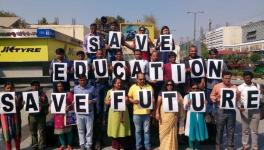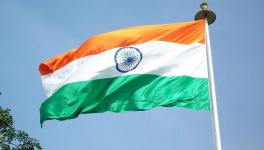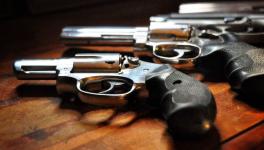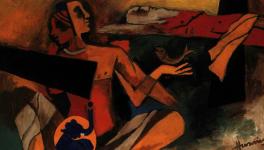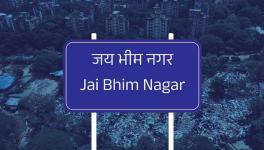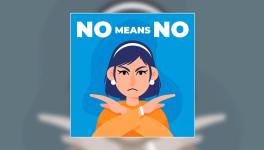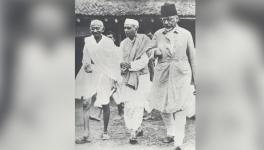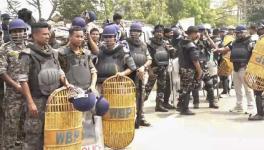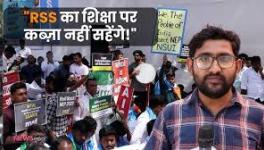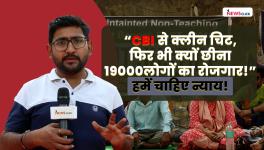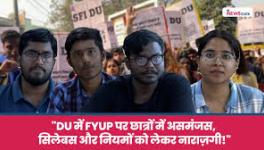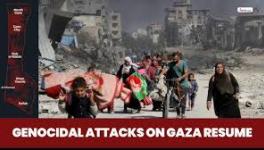Bilkees Bano Case: Rejecting Appeals of 11 Accused Bombay High Court Upholds Convictions
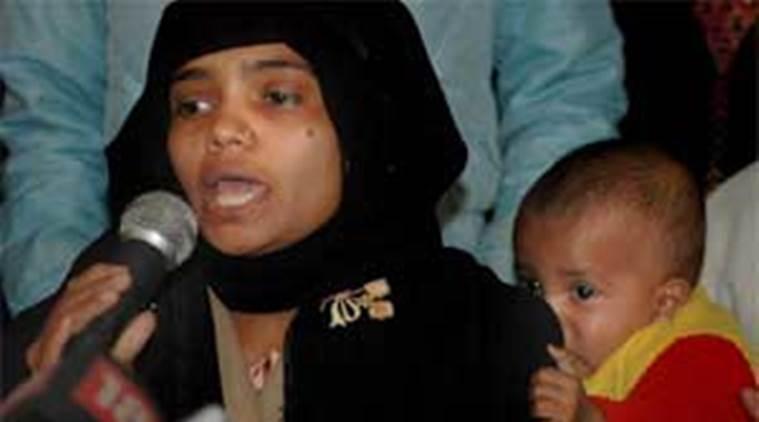
Eleven persons were sentenced to life by a trial court in 2008, for the gangrape of Bilkis Bano and for the murder of her family members in the wake of the Gujarat carnage. Five and a half months after the Bombay High Court reserved its order on appeals filed by 11 convicts against life sentence awarded to them by the trial court in the 2002 Bilkis Bano gangrape case, a division bench of the Bombay High Court delivered judgement on the appeals today. Justices Vijaya Tahilramani and Mridula Bhatkar began delivering the verdict at 11 am today, Thursday, April 4. On December 2, the high court also reserved order on an appeal filed by the CBI, seeking death penalty for three convicts on the ground that this was the ‘rarest of the rare’ case. The bench of justices Vijaya Tahilramani and Mridula Bhatkar had reserved the order after conducting a day-to-day hearing on both the appeals since July 2016.
These eleven convicts, who were sentenced to life imprisonment by a trial court in 2008 for the gang rape of Bilkis Bano and mass murder of 14 persons including her 3 year old daughter, Saleha had appealed the Special Court Judgement convicting them in 2008.
The Central Bureau of Investigation had sought death penalty for the three men convicted for having gangraped and murdered Bilkis Bano and her family members. The court has, however, set aside the plea for enhancement. Appearing for the CBI, Hiten Venegaonkar had argued that the present case was that of “mass murder” as 14 members of a family, including babies who were a few days old. The riots caused a situation of “exodus” and while the family was on the run, they were raped and murdered. Therefore the case belonged to the “rarest of rare” category and warranted the maximum punishment.
Meanwhile, Harshad Ponda, senior advocate appearing for the convicts, had raised doubts on the chronology of the events narrated by Bilkis, the FIR registered by the Gujarat police and the photographs of the dead bodies and other evidence collected from the spot. The High Court had, meanwhile, rejected an intervention application filed by Bilkis Bano seeking that she be granted hearing.
These convicts who include members of the RSS and VHP and have been convicted for the killing of Bilkees' family members in the aftermath of the Godhra riots, had filed appeals in the high court challenging their conviction. The CBI had also moved the high court, seeking death penalty for three of them. CBI counsel Hiten Venegaonkar sought death penalty for three convicts arguing that it was a case of a “mass murder” and the "rarest of the rare case" as 14 members of a family, including a three-day-old child, were killed. Eleven of the convicts were also concurrently convicted for the gang rape of Bilkees and others under the un-amended section 376 of the Indian Penal Code. Eight policemen and doctors, against whom the special prosecutor, RK Shah had urged special proceedings to begin however were not only acquitted but no special proceedings were ordered by the Special Judge. Harshad Ponda had appeared for the accused.
Special Judge UD Salvi had concluded dictating his judgement on January 21, 2008, in Mumbai when the court had held the 11 convicts-Jaswant Nai, Govind Nai, Shailesh Bhatt, Radhyesham Shah, Bipin Chandra Joshi, Kesarbhai Vohania, Pradeep Mordhiya, Bakabhai Vohania, Rajubhai Soni, Mitesh Bhatt and Ramesh Chandana-guilty of murder and gangrape among other charges.All of them were awarded life imprisonment. It was the case of the prosecution that in March 2002, Bilkis’ family was attacked by a mob at Randhikpur village, 250 km from Ahmedabad in Gujarat. Bilkis, who was 19 years old at the time and five months pregnant, was gangraped by the convicts. Fourteen members of her family were killed. The Supreme Court had ordered the transfer of the case to Mumbai. This was one of two re-trials ordered by the Supreme Court with relation to the genocidal carnage in Gujarat including the famed Best Bakery case. The judgement of the Special Court finally that concluded on April 19, 2008 may be read here.
The chargesheet filed by the CBI in this case that was the document shown by the National Human Rights Commission(NHRC) to the Supreme Court that ordered the transfer of the trial to Maharashtra was a detailed reflection of the complaint dated 4.3.2002 filed by Bilkees Bano at the Limkheda Police station in Panchmahals. Bilkees Bano had been interviewed by Communalism Combat when its co-editor, Teesta Setalvad accompanied former chairperson of the NHRC, Justice JS Verma to the Godhra Relief Camp on March 22, 2002. Her account of the violent ordeal that she suffered ma y be read here. The shocking lapse in investigation by the Gujarat police was the reason for the transfer of the case to Mumbai. The Chargesheet filed by the CBI may be read here.
Disclaimer: The views expressed here are the author's personal views, and do not necessarily represent the views of Newsclick.
Get the latest reports & analysis with people's perspective on Protests, movements & deep analytical videos, discussions of the current affairs in your Telegram app. Subscribe to NewsClick's Telegram channel & get Real-Time updates on stories, as they get published on our website.









